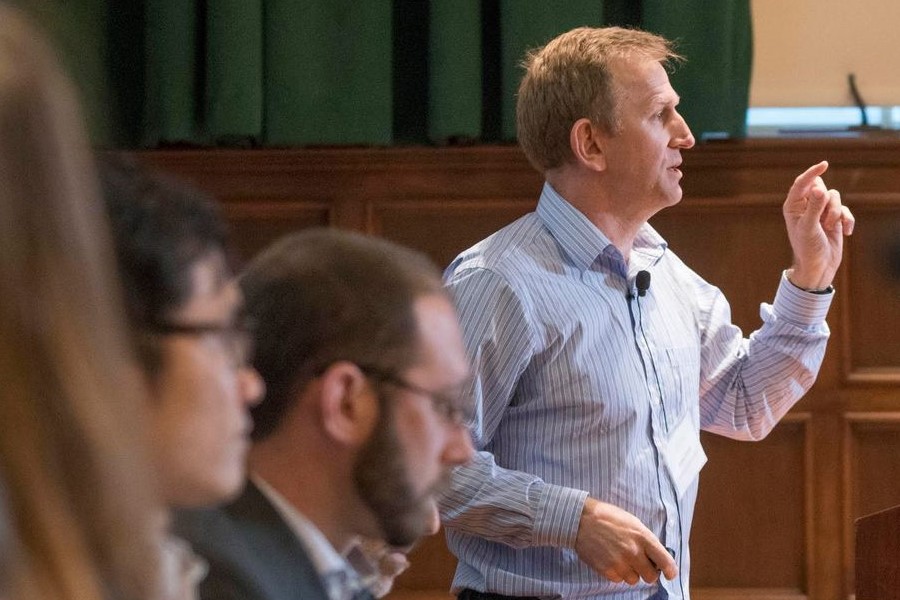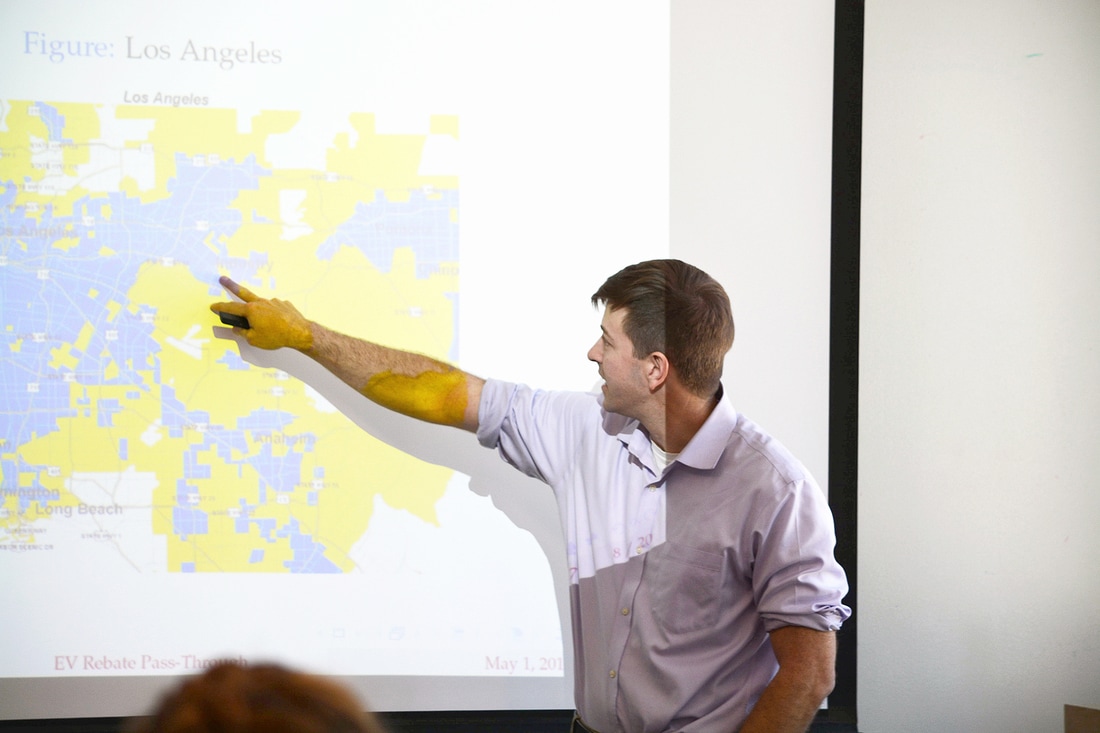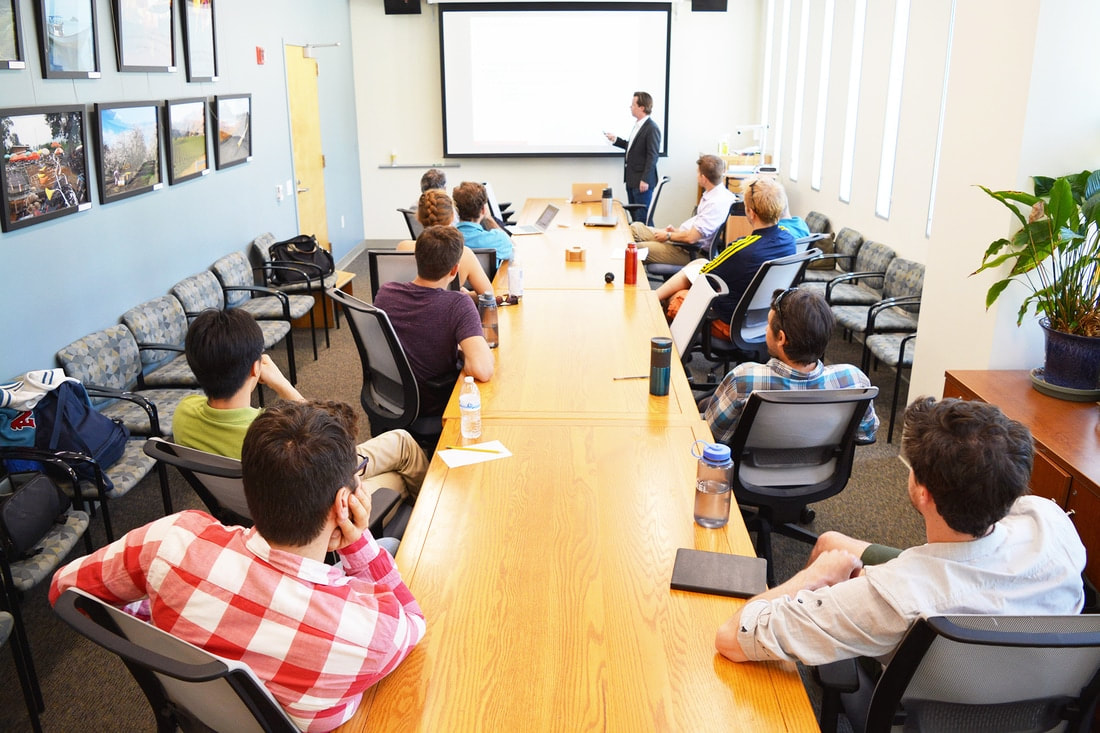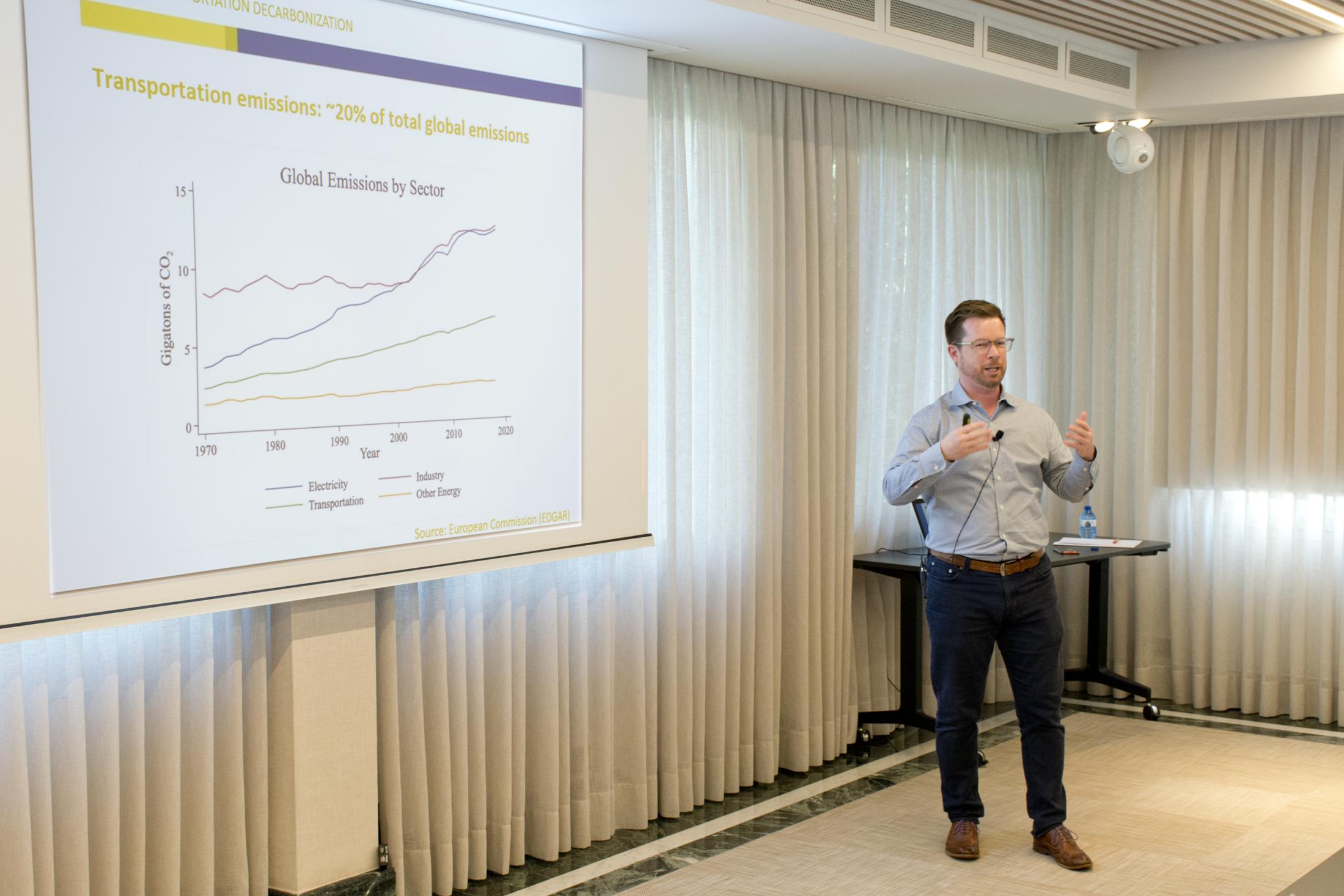Davis Energy Economics Program
The newest addition to the UC Davis Institute of the Environment, the Davis Energy Economics Program (DEEP), advances understanding of the energy sector — a central component of Earth’s climate future. Energy is an input to nearly every sector of the global economy and contributes more than 75 percent of the earth's greenhouse gasses to the atmosphere. Supporting interdisciplinary research informing the world’s Energy Transition is a priority for the Institute.
“Society enjoys spectacular benefits from energy use. Energy connects our world through global trade and transportation, and allows us to adapt to our natural environment through basic services like climate control and illumination," said David Rapson, co-director of DEEP. "The energy transition is of course about decarbonization and climate change mitigation, but it’s also about maintaining energy services so that our global society can continue to function and thrive.”

DEEP spans several units at UC Davis and supports economic research on most aspects of energy economics, including fuels markets, energy consumption, electricity regulation and deregulation, vehicle markets, energy transportation, and emissions trading.
“Beyond just studying the economics of energy markets themselves, DEEP researchers bring unique perspectives and valuable sets of empirical tools that have been applied to technical and policy aspects of the clean energy transition,” said Jim Bushnell, co-director of DEEP.
Climate policy research from DEEP investigates and assesses the efficacy and efficiency of climate policies and their impacts on the energy sector, as well as the broader economy. In turn, energy markets research analyzes challenges and effects of regulation and naturally leads to recommendations for how to minimize social costs of an energy transition.
With transportation fuels accounting for almost 40 percent of U.S. greenhouse gases, DEEP also supports research to advance our understanding of transportation and fuels markets, researching regulation, taxation, and competition in the petroleum sector, as well as automotive and biofuels industries and the prospects for electrification.
“DEEP’s members are constantly interacting with representatives from the energy industries, as well as federal and state regulators and policymakers," Bushnell said. "Our mission is to understand how these industries work in the ‘real world’ and to help shape better policy decisions.”




DEEP serves as an intellectual hub through which the Davis energy economics community, industry, and policymakers exchange ideas, research, and information on today’s energy sector, and provides an integral part of the interdisciplinary research the Institute of the Environment supports to help find solutions to our planet’s most critical environmental, health, and energy challenges.
